ESPN’s Paul Finebaum tells it like it is. The outspoken host of “The Paul Finebaum Show” is the most influential national voice in college football, in large part due to his weekday afternoon ESPN Radio show that’s simulcast on the SEC Network.
Dubbed the “King of the South” in a profile by “The New Yorker,” Finebaum rarely holds back. In the wake of the worldwide George Floyd protests for racial justice, he’s gone hard at Clemson coach Dabo Swinney for not punishing an assistant coach who used a racial slur at practice then being photographed in a “Football Matters” T-shirt.
On June 10, Finebaum warned on “Get Up” that “time is running out” on Alabama coach Nick Saban’s quest to pass late Crimson Tide predecessor Bear Bryant’s record of six national titles. The following day, he termed the NCAA a “joke” that has “outlived its usefulness.”
Let’s not forget Finebaum calling Michigan’s Jim Harbaugh the “most overrated coach” in the country: “He can’t get it done.”
Besides his own caller-driven program, the 64-year old Finebaum is now a fixture on ESPN’s top studio shows, ranging from “College GameDay,” “SportsCenter” and “SEC Nation” to “Get Up,” “First Take” and “College Football Live.”
During the coronavirus pandemic, Finebaum has mixed in serious discussions with his famously passionate callers. With ESPN poised to take over CBS Sports’ SEC game package after the 2023 season, his influence will only grow.
Finebaum boasts 753,000 followers across Twitter, Facebook and Instagram. Finebaum’s current three-year contract with ESPN runs through 2021, said sources.
Excerpts:
Front Office Sports: Did Dabo Swinney go far enough with his video apology/explanation for assistant Danny Pearman and that T-shirt?
Paul Finebaum: Dabo is a great coach. But he missed an opportunity to make a meaningful and memorable statement at this seminal moment in history.
FOS: There are reports you might go independent. Or rejoin your former ESPN boss John Skipper at DAZN? Your response?
PF: The last three months of talking with sports fans daily about COVID-19 and the shattered sports calendar – and more recently discussing the impact of George Floyd’s tragic death – have been the most important and meaningful of my career. I love working at ESPN and have no interest in doing anything else.
FOS: Your ESPN contract runs through 2021. Do you want to stay at ESPN?
PF: Let me think about this question for a second because I’ve asked this question to many, many people I always hate when they give me some political answer. But I will give you something that isn’t political. It’s the honest truth. I’ve never enjoyed working for this company more. I’ve never been more honored and felt more of a responsibility than over the last (couple of months). What may have appeared in the media in November or December or January and February is fine. I can’t undo whatever reporting went into those things or whatever people were thinking about, But right now, I don’t want to go anywhere.
FOS: Do you see your role changing? Becoming a permanent cast member of “College GameDay?”
PF: I’m really happy doing what I’m doing. I have this show that we do every day. It’s my favorite thing of all the things I do. It’s the most important thing that I do. I leave it to the people I work for to tell me where to go and when. I’ve been very fortunate to do a lot of things.
Last year, I spent two days a week in New York doing ‘Get Up’ and ‘First Take.’ I spent Sunday mornings in Bristol on ‘SportsCenter.’ Those are things I really love. If the company tells me they want me to do something else, I’ll do what they want me to do.
FOS: You said you’ve noticed a “paradigm” shift in attitudes on the return of college football post-pandemic. Will we see games this fall?
PF: Right now, I do believe that. What happens in sports corresponds with what’s happening in the real world of trying to get everyone through this. There were some really bleak moments when people in the industry would tell you privately, ‘I don’t how we’re going to do this.’…I remember talking to [Notre Dame Director of Athletics] Jack Swarbrick one day and he very bluntly said, ‘If we don’t get students on campus, I don’t know how we could do this.’
Then, all of a sudden, a week or two later, you started hearing, well, maybe we can get some students on campus. Nobody ever said whether that’s six or 60,000. It just seemed to make that turn toward the positivity train, where everyone’s announcing campuses are going to be open. And then, probably the most significant moment when the NCAA started saying players can return to campus for voluntary workouts. I love the word ‘voluntary.’
READ MORE: Skip Bayless Contract Talks To Test Fox Sports And Upended TV Market
FOS: Are we looking at haves and have-nots, where the financially secure power schools play, while some smaller schools don’t?
PF: I think most schools will play. There will be an outlier or two. [American Athletic Conference Commissioner] Mike Aresco made that point to us the other night where he said we have to be prepared to move forward – even if everyone can’t play. So I think most will start. I do think that watching the season though is going to be like watching the Dow Jones on ‘Triple Witching day.’ There are going to be just a lot of ups and downs, and unbelievably wide swings of emotion, which I think everyone has to be prepared for. I’m an observer. I’m not a stakeholder. I think they’re going to be a lot of really wild days when you start getting some bad news in one part of the country. And how is everyone going to react?
FOS: Due to social distancing, other leagues are starting to play in empty or mostly empty stadiums. But college football is different. Would college football be college football without fans in the stands?
PF: I think it will be different. But right now, college football fans are like fans of MLB and the NBA and the NFL and the NHL. They have such a hunger for seeing the sport, they’ll deal with anything at the moment. Our program might not be the best place to judge. I’ve had fans calling for weeks saying, ‘This is not going to stop me from going to a game, I’m not concerned, you can’t live in fear.’
What’s happening in sports, to me, mirrors what’s going on up and down the cable news dial. You have one extreme saying one thing. You go down to the other side and you’re hearing the antithesis of that. So college football fans are literally all over the place, just like college football administrators. You have a number of them that just simply say, ‘I’m going to the game. I’ll sign a waiver.’ They’re not the least bit concerned. Then you talk to other people who say, ‘I’m not going, I’m not getting near a game.’So I don’t know where it’s going to land. You see the same reports as I do, where some athletic directors say, ‘I don’t know why we can’t have a full stadium by the end of the year.’ I think those who say that are not being honest. Nobody expects that.
FOS: College football is decentralized. There’s no overall commissioner. Is that an issue during moments of crisis?
PF: I think college football is the most difficult platform to understand. You don’t have 32 billionaire owners who can hook up on a Zoom call and encourage, or tell, [NFL Commissioner] Roger Goodell what to do or not to do. It’s chaotic trying to follow the bouncing ball. I’ll give the [ [college football] commissioners credit. They are in concert right now with one another. Whether that holds up as we get closer, I don’t know. But there’s never been a more striking moment in college athletics where the need for someone to be the de facto head of college football has never existed more. Mark Emmert is not. He’s the President of the NCAA, which has jurisdiction over college athletics in terms of compliance. But it does not run college football. It virtually has nothing to do with the College Football Playoff.
FOS: To quote you on ‘Get Up,’ ‘Mark Emmert has as much influence over college football as Bozo the Clown.’
PF: I thought for two weeks or three weeks, whether I should walk that one back. I’m going to keep thinking about it.
FOS: Is there too much at stake financially for schools, conferences, TV networks, and sponsors to delay or cancel the season?
PF: Not to go back to 2008 and the financial crisis. But it’s almost too big to fail. That’s why there’s such a resiliency among college football leaders too to get this season underway. If you’re watching it from afar, it seems, or has seemed, rather cold-blooded for people to keep saying it. But those who said it early on, I think have been vindicated now…I just hope, as someone who loves college football and has been in it my entire life, that they just don’t say they’re going to be careful, they don’t just put a bunch of protocols out. That they really back it up. Because there are already inconsistencies across the country.
I was talking to the coach at South Carolina, Will Muschamp. He said we’re sitting in rooms, wearing masks, and doing everything we’re asked by the CDC. We’re doing shifts. The players are coming back and we’re going to test them every day. Then I read where another athletic director says we’re not going to test every day. Some athletic directors have said we’re just going to test players with symptoms.
I’m a talk show host. I’m not Anthony Fauci. But I think anyone who has followed this, either very closely or from a distance, knows you can’t just randomly do tests and be accurate. Secondly and maybe most importantly, the testing right now, and it will change, is very expensive.
Yes, Alabama and Florida and Notre Dame and Southern Cal and Ohio State can afford whatever it takes. But there’s a lot of schools out there that can’t. That’s where I think you’re going to have the haves and the have-nots. Instead of talking about haves and have-nots in relation to whether one school has a great season or another school misses out on a bowl game. We’re talking about life and death here. It’s a far more serious issue. I still don’t believe that college football is close to having a handle on it.
FOS: You sounded another warning on ‘Get Up.’ Namely, if college football delays or cancels its season, the NFL could fill the void this fall with its own Saturday night games. Should those in college football be worried about pro football taking over their TV windows?
PF: I think some are – and justifiably so. I’ve watched college football over the last five or six years. When I went to ESPN nearly seven years ago, college football was the No. 2 sport in this country behind the NFL. It is no longer. The NBA has brilliantly broadened the base. It hasn’t hurt that there are a handful of mega-stars. You have a lot of really smart people who have made the NBA an incredible sport in this country. And globally, as we all know.
College football, even though it’s still very popular, has slipped behind the NBA. Some of it is because of the College Football Playoff, and the reluctance to tweak that, and make it more inviting and inclusive to a larger number of people. I’m not going to sit here and argue whether the playoff committee has gotten it right the past couple of years. Well, yes, they’ve gotten it mostly right.
But to me, it’s a convoluted system. Last year the difference between the first game on that Saturday at the end of December, I think we had three weekends of the NFL. Two of them were playoffs. You just can’t cede that much real estate if you’re going to be viable. Every year, I’m sitting there at the College Football Playoff site on Saturday and Sunday, watching the NFL just eat away at the reach of college football. So I think something has to change on that front.
FOS: Should they expand the CFP? More teams? Another round?
PF: I think so, yes. By including at least one more round, you make it more of a tournament. Last year, you could have had 15 rounds and I think you’re still going to get LSU as the champion. But that’s not really the question. The question is trying to draw an audience, and trying to keep an audience throughout that long period.
Another thing, the college football season usually ends on the first weekend in December. Then you really have a long layoff where you lose momentum…I’m not here to besmirch these great Bowl games that start in the middle of December. Communities support them. They’re all, in their own ways, important programming for ESPN as well. But there’s still room to put another weekend of college football in there that would help bang the drums for the leadup to the final game.
FOS: So what’s the ideal number of teams?
PF: You could go six, which would give one and two a bye, which isn’t a bad idea. Or go to eight. I don’t think this should be like the Indiana High School basketball tournament, where you have a season, and then everybody gets right back in.
I think there has to be a premium. College football is like that. It’s probably the most intense regular season of any sport because you don’t know whether you can afford to lose or not. But I think having a little more leeway, schools would strengthen their schedules. I think they’re already doing that in most places. You could eliminate one of these directional games. To me, it’s really about building the audience for the final game. I think that’s where college football has missed; really since the beginning of the BCS and through the College Football Playoff. You could look at the numbers. You don’t need me telling you that.
FOS: How do you like the ‘MegaCast’ format ESPN uses for the CFP National Championship? You’ve been part of it with “Finebaum Film Room.’
PF: I like it a lot. I’ve been a part of pretty much all of them, in some form or fashion. We’ve done our show a number of years, taking calls. I’ve been part of other presentations. I think they’re fantastic. I think ESPN was probably ahead of the curve on that…I think it’s a matter of finding the right way to do it. Some of them have been fantastic. I’ve had a blast doing them. You just appeal to different platforms. I think it’s one of the most creative things that I’ve seen done. That’s where college football has done well.
FOS: Mike Greenberg’s ‘Get Up’ has become a virtual factory line for up-and-coming ESPN talent. Maria Taylor, Dan Orlovsky, Marcus Spears, Laura Rutledge, Elle Duncan, Dianna Russini, Damien Woody, Cassidy Hubbarth, Dan Graziano, the list goes on. How do you like appearing on that show?
PF: I love ‘Get Up.’ I’m not trying to sound like a company man here. I leave that for everyone else. But I think Greenberg has found his role. His role is running that show. He is so good at it. As a host, I’ve sat there with him countless times during a breaking story or a heavy news day. He can move in and out of things better than anyone I have seen in my career. He’s absolutely a virtuoso in doing so. I think that’s why the show’s gotten better.
It wasn’t my decision to have three hosts. I did the very last show when they had three hosts. That was my first day up there. Thinking about the chaos of my first day, versus most of the days I’ve done since with just Greeny, are night and day.
READ MORE: Q&A: Jason Whitlock Opens Up About Leaving Fox Sports
There’s a lot that goes into that show that I just marvel at. They leave nothing to chance. Being a guest talent on ‘Get Up’ is exhausting. I say that admirably. You don’t just roll out of bed, walk over to the set and get on that show. You talk with producers. There’s a 6 am meeting when I’m in New York every day. Greenberg is just an absolute take-charge person. I can’t say enough about him.
FOS: Fiery longtime callers to your show like “Phyllis from Mulga” and late Auburn superfan Tammy Bullard have become famous in their own right. Or infamous like Harvey Updyke, the ‘Bama fan who admitted poisoning trees at Auburn’s Toomer’s Corner. How important are callers to your show?
PF: We wouldn’t have a show without callers…As our show got bigger in Birmingham, I realized that we had something really unique and it was the callers. At the time, being a local show, we did not have the ability to get the great guests that you can get when you’re affiliated with ESPN. So we essentially turned the show over to the callers. Personalities developed. Sometimes good, sometimes not.
When I left Birmingham to come to ESPN, there was a great deal of debate. Some people could not believe that we were going to let the callers remain a big part of the show. But I’m really glad we did because I think that’s what separates us from every other talk show.
There are some great sports shows in America. I happen to think Colin Cowherd is one of the most talented people I’ve ever worked with. We were close friends at ESPN. I mean, he can walk in and do a monologue for 25 minutes that is absolutely brilliant. Stephen A. Smith? I’ve done his show many times when he was on the radio. The same thing. But that’s not who I am. Over the years, I have had relationships with callers. I think especially during COVID-19, I’ve never felt closer to callers. People want to hear what other people have to say.
Yes, we are the show where Harvey Updyke called in 2011 and admitted poisoning a tree. But we’re also a show where a lady called in the other day from Alabama and said that her 99-year old mother was close to going to hospice. But she still watched the Finebaum show every day and related to the callers. That was her entertainment for the day. You’ll have to have a gun at my head before I’ll let go of what has made the show whatever it is.
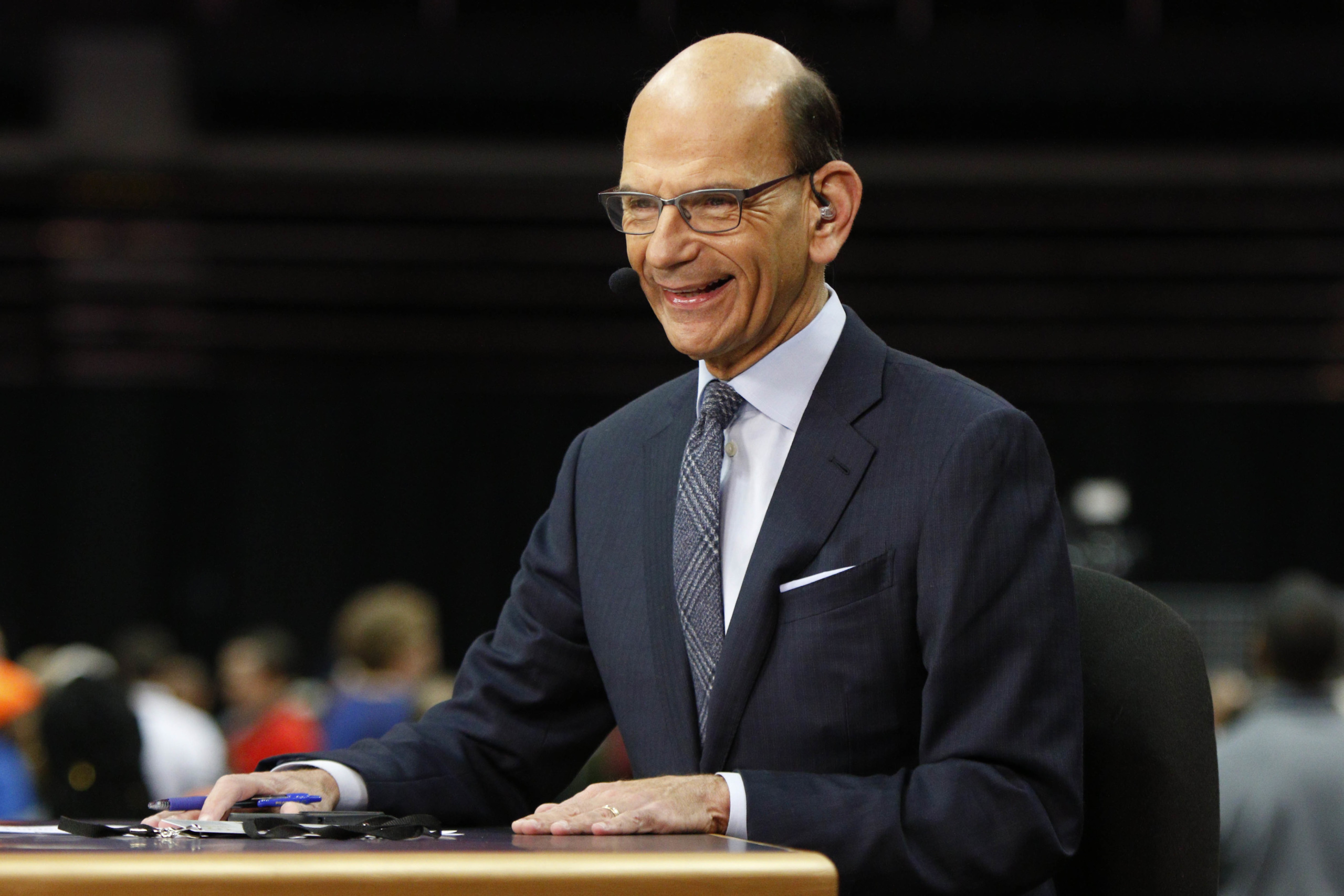
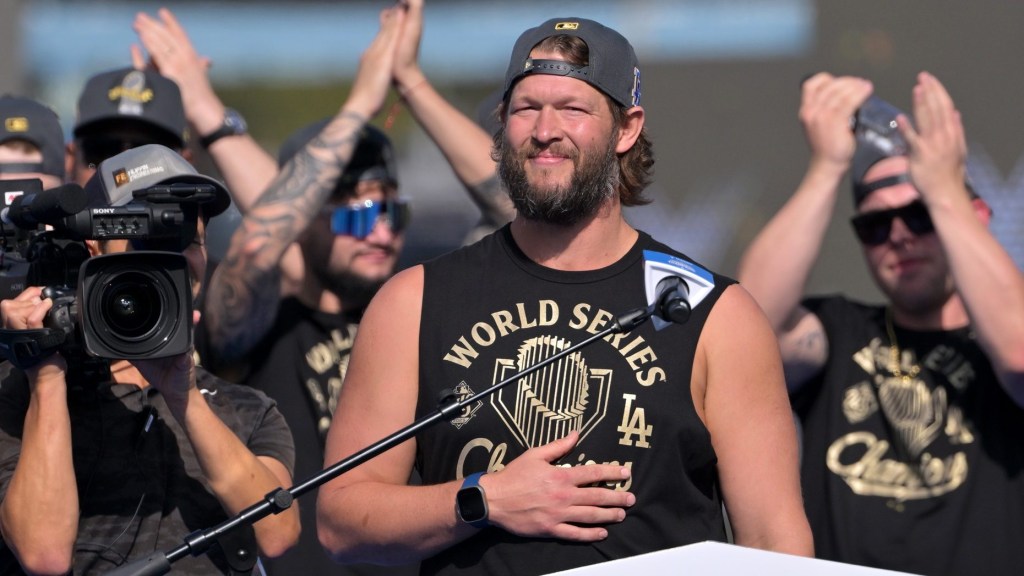
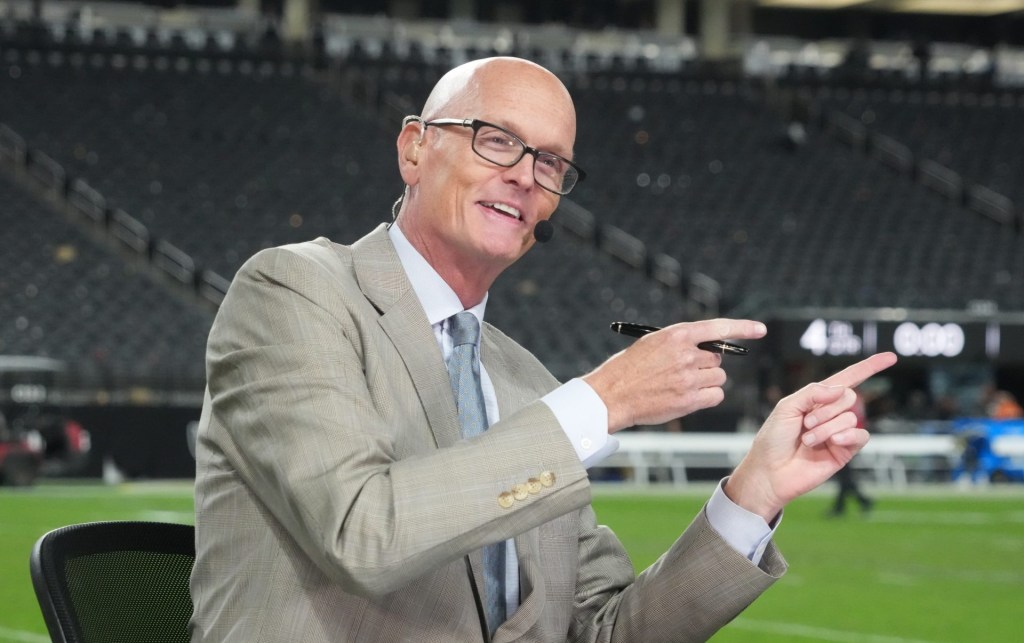
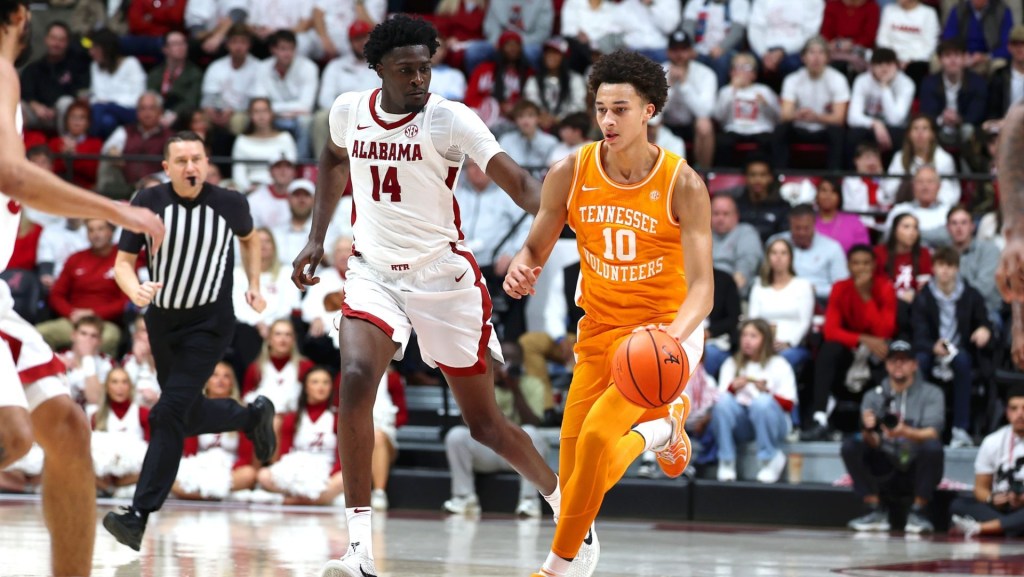
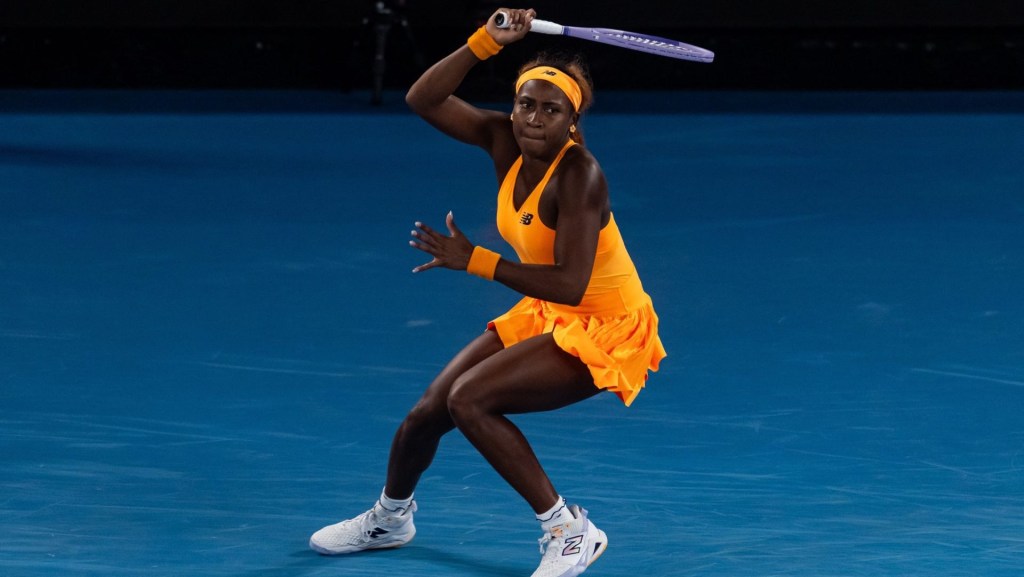




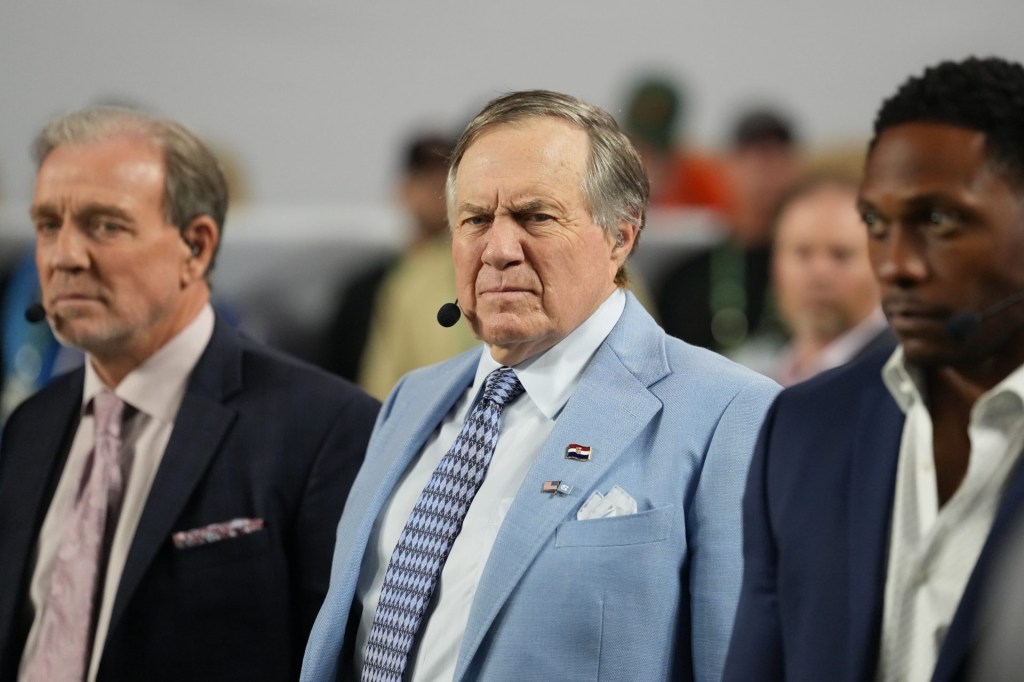
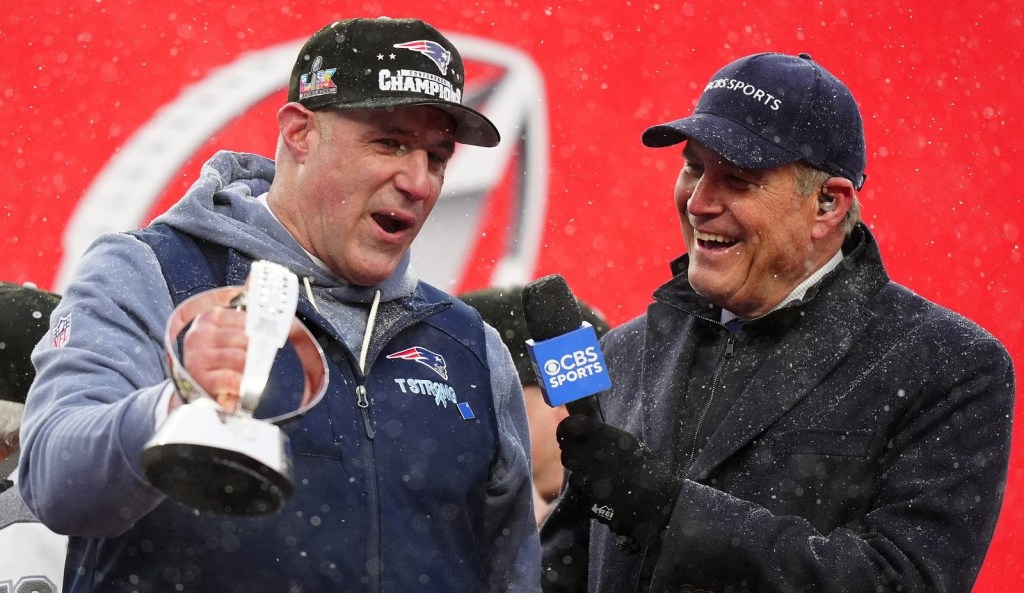
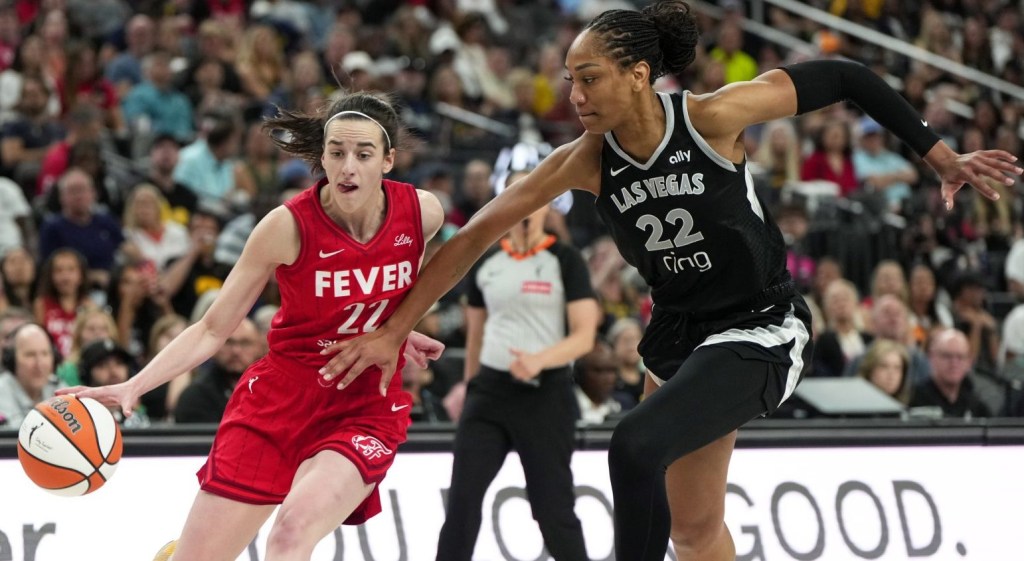

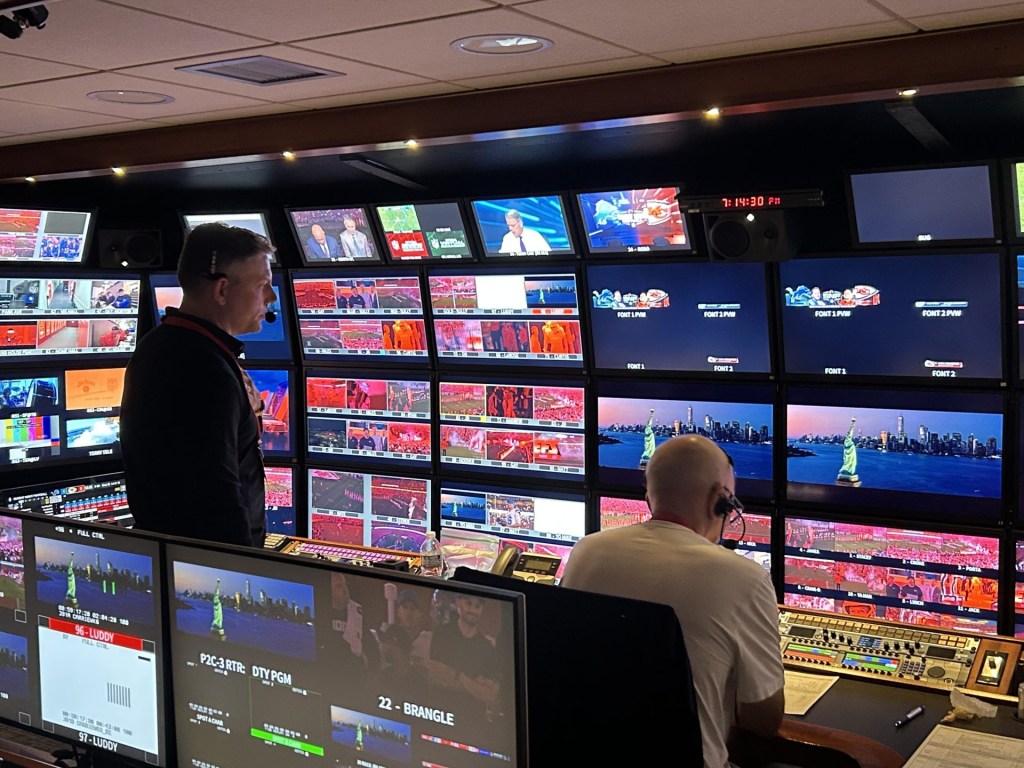
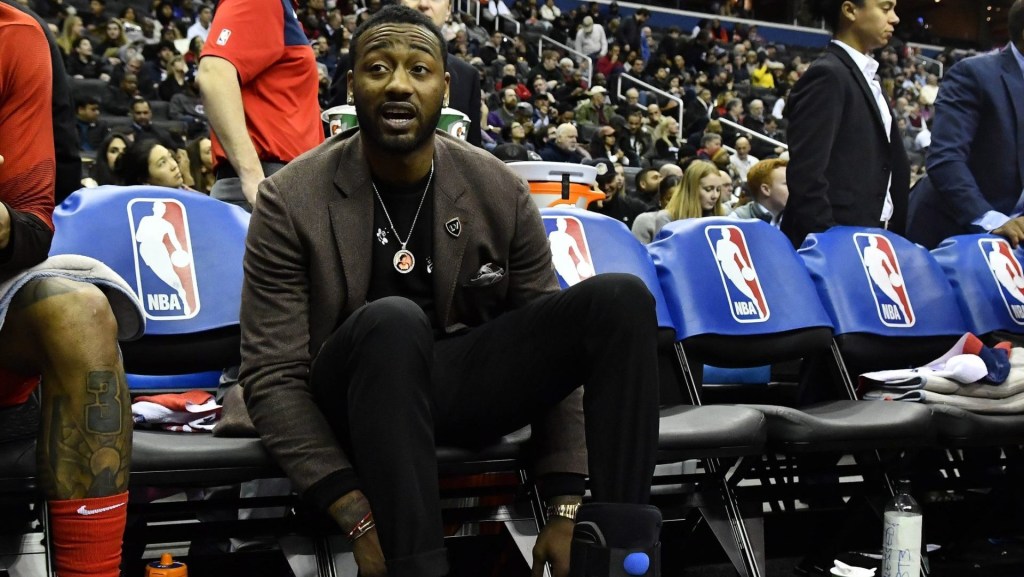
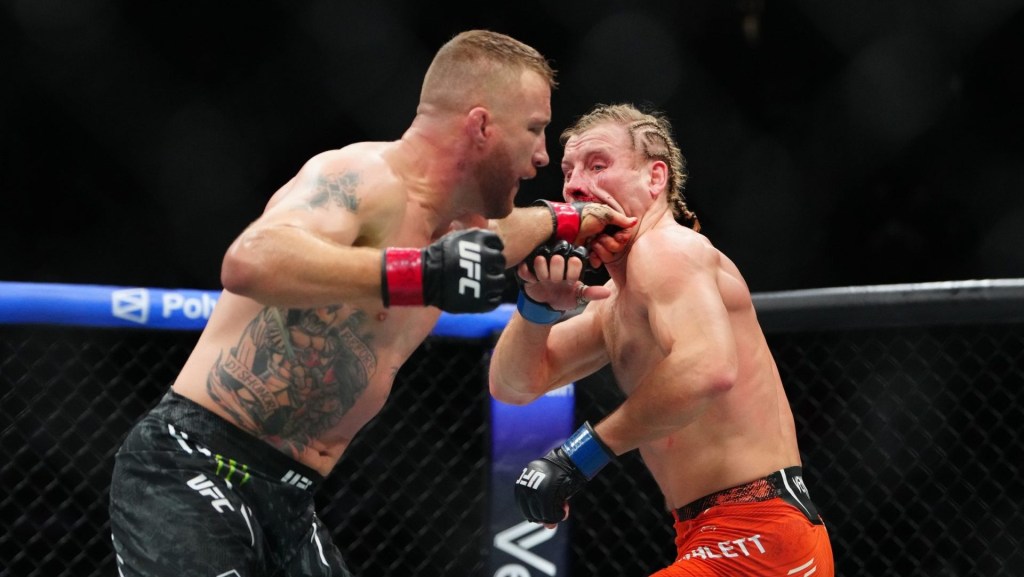
![[US, Mexico & Canada customers only] Jan 25, 2026; Taipei, TAIWAN; Alex Honnold free solo climbs Taipei 101.](https://frontofficesports.com/wp-content/uploads/2026/01/USATSI_28081468_168416387_lowres-scaled.jpg?quality=100&w=1024)
